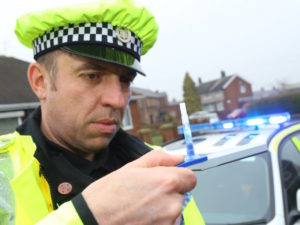Make rehabilitation courses compulsory for all drug-driving offenders, says IAM
IAM RoadSmart has responded to the Government’s call for evidence on drug-driving, saying rehabilitation courses should be compulsory for all offenders.

Anyone caught driving ‘under the influence’ of either drink or drugs should expect a rehabilitation course as well as a fine and a ban, according to IAM
The general assumption should be that anyone caught ‘under the influence’ of either drink or drugs should expect a course as well as a fine and a ban, according to the road safety charity. And it stresses that this approach should be adopted as soon as possible.
The government consultation on the subject is open until tonight (28 June 11:45pm) and seeks evidence on the creation of a drug-driver high-risk offender scheme that requires clearance at a medical level to regain a driver’s licence, and also for a rehabilitation course to help offenders tackle their issues.
Neil Greig, director of policy and research at IAM RoadSmart, said the need to cut drug driving reoffending was paramount to ensure the safety of all road users.
Drug-related driving offences have risen in recent years – there were over 12,000 convictions in 2019, of which 44% were committed by reoffenders.
And while drink-drive related deaths and injuries have fallen, a total of 713 people were seriously injured in drug-driving collisions in 2020; up from 499 in 2016. Some police forces are arresting more drug drivers than drink drivers.
While those convicted of drug-driving currently receive a driving ban, prison sentence or fine by the courts, they aren’t required to complete rehabilitation courses before resuming driving – unlike drink drivers – and this has come under focus in the Government’s call for evidence.
Greig added: “The consultation information clearly demonstrates that driver intervention courses deliver real benefits in the form of reduced reoffending. This is well proven for the Drink Drive Rehabilitation Course, but also for Speed Awareness Courses. IAM RoadSmart are in no doubt that a bespoke drug driving course will have the same impact.
“Rehabilitation courses often provide the first opportunity for offenders to face up to the impact of their offending and receive positive counselling support in relation to their driving. The course assists them in taking responsibility for their actions to allow them to put plans into place to change their behaviour before they get their driving licence back.”
However, the charity also said in its response that it shared the concerns of other course providers that alcohol and illegal drug offenders are different and emphasised that a ‘drug driver only’ course should be developed.
“Whilst there might be some similarities between drink driving and drug driving, we are not convinced that mixing two different types of offenders together in the same room is the best way forward,” added Greig.
The Government’s call for evidence also looks at changing specimen procedures to decrease the risk of bloodborne viruses to healthcare professionals, and will seek views on the relationship between medicinal cannabis and road safety.
Later this year, the Government will seek views on other drink and drug driving issues, such as failing to stop after a collision and the criminal use of vehicles.












